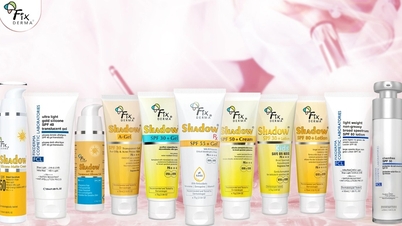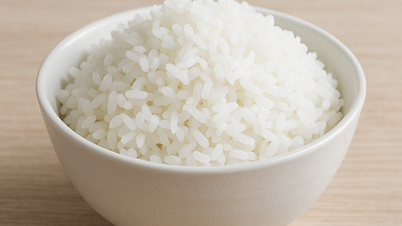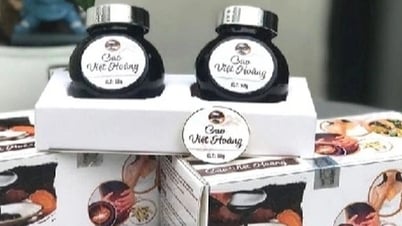Using sunscreen is essential in daily skin care because this product acts as a shield and protects the body from harmful ultraviolet radiation such as UVA, UVB rays. Even in winter or any season of the year, sunscreen should be used because it helps prevent dark spots, dull skin, and maintains smooth and even skin tone.
Currently, sunscreen products can be divided into two basic forms: cream and spray. Both cream and spray sunscreens have their own advantages and disadvantages. So which type of sunscreen is more effective?
Advantages of sunscreen cream products
Sunscreen is no longer strange to women. Sunscreen cream products often have a liquid or thick texture and are divided into two main types: chemical sunscreen and physical sunscreen.

The most obvious advantage of sunscreen is that it is spread evenly on the face so it will penetrate the skin, creating an even layer of coverage so it will have better protection. In addition, sunscreen is usually alcohol-free so it does not cause skin irritation.
However, cream sunscreen products will take us a lot of time to spread the cream on the skin, especially when we need to reapply the cream after a certain period of time. Especially for people who are wearing makeup on their face, reapplying sunscreen is difficult, affecting the existing makeup.
Advantages of spray sunscreen products
The biggest advantage of spray sunscreen products is that they are convenient to use, without wasting time applying sunscreen. When using, re-spraying is also extremely easy and quick. The product has a light texture after use, creating a comfortable feeling. The absorption ability of spray sunscreen is very good and fast, without clogging pores.

The advantages of spray sunscreens are also the disadvantages of topical sunscreens. However, spray sunscreens also have some disadvantages. That is, the ability to measure the amount of product when used on the face is more difficult, causing the protective layer of spray sunscreen to be uneven on the skin surface, somewhat affecting the protection effect. In addition, using spray sunscreens will be more expensive because a certain amount of product will be sprayed into the environment during spraying, causing waste.
The protective layer of sunscreen sprays is not absorbed into the skin, so it evaporates easily. Many spray sunscreens can be easily washed away, requiring repeated application. Some spray sunscreens may contain alcohol, which can dry out the skin and cause irritation.
Sunscreen cream or sunscreen spray is better?
Sunscreen sprays and creams both have their own properties and provide protection against the harmful effects of the sun. Therefore, which type to use will depend on each skin type and usage needs.
Obviously, to best protect the face and reduce the risk of irritation, we should consider applying sunscreen. However, people with oily skin or acne-prone skin should use spray sunscreen. Spray sunscreen often has a thin, light texture, so it limits the greasy feeling, causing clogged pores and acne. As for dry skin and combination skin, you should use sunscreen.

However, the cost of using sunscreen spray is higher than that of cream. The process of using sunscreen spray is also more wasteful due to loss into the environment when spraying. Meanwhile, sunscreen cream will be more economical, easy to measure the amount of cream used on the face. For those who need to tone up the skin and moisturize, they should use sunscreen. This product can be used instead of a primer when applying makeup.
In addition, users can completely combine these two types of sunscreen products. On sunny days, when you have to do a lot of outdoor activities, you should prioritize applying sunscreen and reapply sunscreen spray during activities.
For days when you only work indoors, you may only need to use spray sunscreen. Sunscreen should be reapplied after 4 hours of use. Sunscreen spray should be reapplied after 2 hours.
Note to use two cream lines of the same brand to bring the best results.
Source: https://giadinhonline.vn/kem-chong-nang-dang-kem-hay-xit-tot-cho-da-hon-d199572.html









































































































Comment (0)